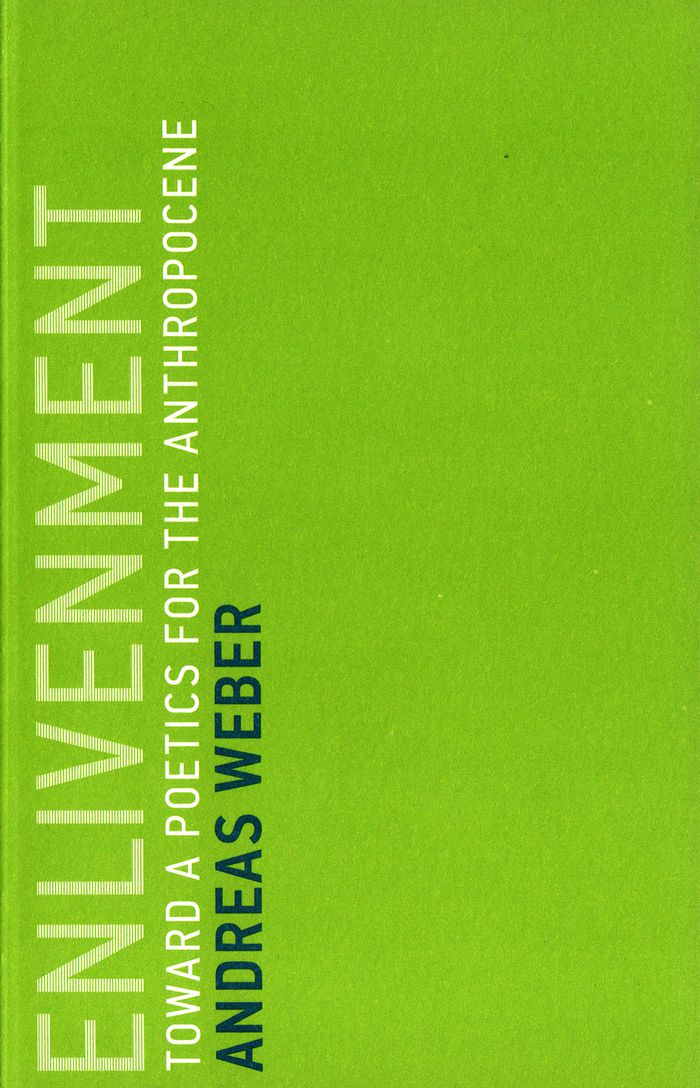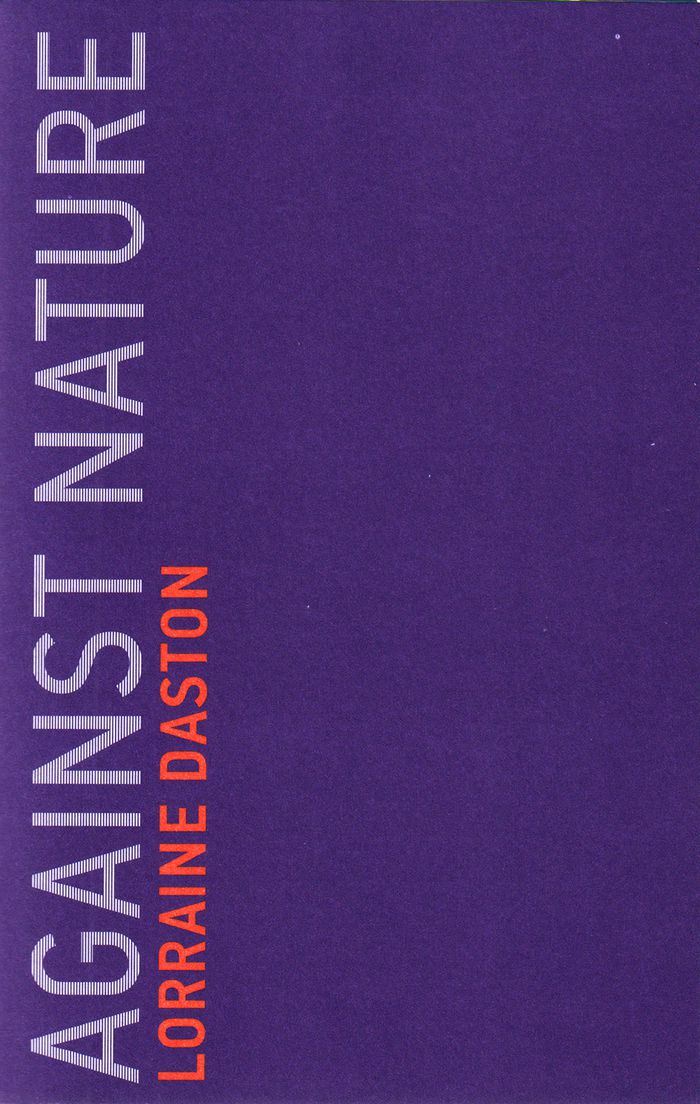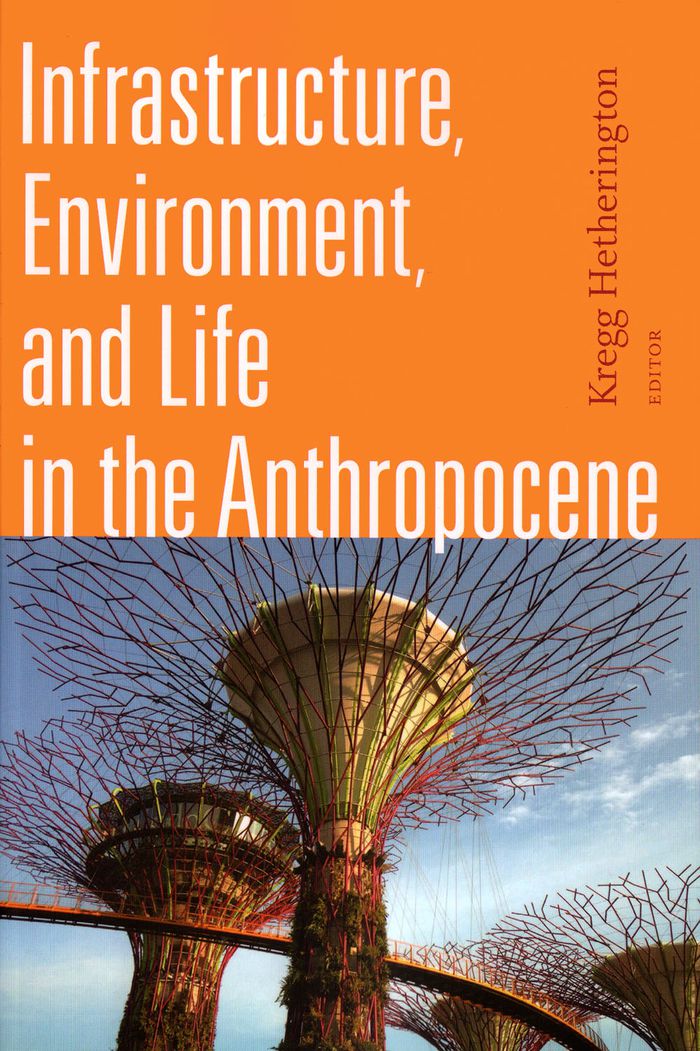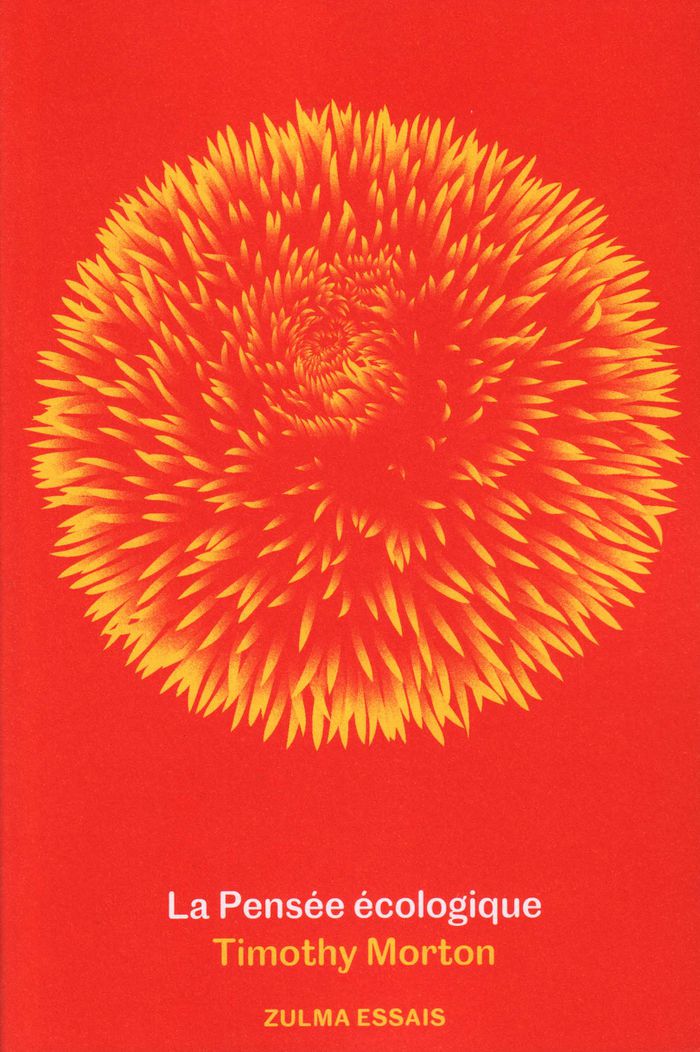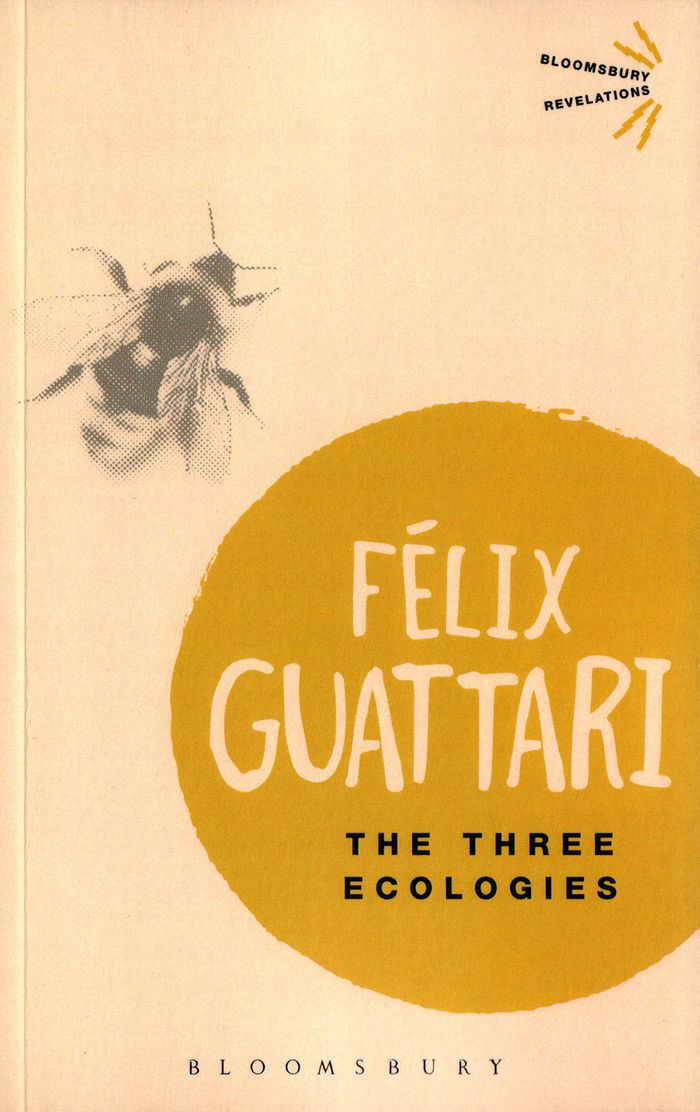$48.95
(disponible sur commande)
Résumé:
Nature has always been a source of inspiration for the design of the human environment. The analysis of biological constructions can not only lead to astonishing technical solutions but can also inspire the design of architecture. Bionics is a fascinating border area between pure research and practical application: biologists, chemists, physicists, mineralogists, and(...)
mai 2019
Biomimetics for architecture: learning from nature
Actions:
Prix:
$48.95
(disponible sur commande)
Résumé:
Nature has always been a source of inspiration for the design of the human environment. The analysis of biological constructions can not only lead to astonishing technical solutions but can also inspire the design of architecture. Bionics is a fascinating border area between pure research and practical application: biologists, chemists, physicists, mineralogists, and paleontologists meet up with material scientists, engineers, and architects and transfer their knowledge to architecture and construction. Using numerous practical examples, this illustrated introduction traces the process from the understanding of how something functions, to abstraction- ?for example, in computer models- ?and the construction of initial prototypes, through to fully functional manufacture and production.
$34.95
(disponible sur commande)
Résumé:
Do both the zoo and the mental hospital induce psychosis, as humans are treated as animals and animals are treated as humans? How have we looked at animals in the past, and how do we look at them today? How have zoos presented themselves, and their purpose, over time? In response to the emergence of environmental and animal studies, anthropologists, sociologists,(...)
juin 2019
Zoo studies: a new humanities
Actions:
Prix:
$34.95
(disponible sur commande)
Résumé:
Do both the zoo and the mental hospital induce psychosis, as humans are treated as animals and animals are treated as humans? How have we looked at animals in the past, and how do we look at them today? How have zoos presented themselves, and their purpose, over time? In response to the emergence of environmental and animal studies, anthropologists, sociologists, philosophers, theorists, literature scholars, and historians around the world have begun to explore the significance of zoological parks, past and present. “Zoo Studies” considers the modern zoo from a range of approaches and disciplines, united in a desire to blur the boundaries between human and nonhuman animals. This collection immerses readers in the lives of animals and their experiences of captivity and asks us to reflect on our own assumptions about both humans and animals. “Zoo Studies” will change the way readers see nonhuman animals and themselves.
Space settlements
$29.95
(disponible sur commande)
Résumé:
In the summer of 1975, NASA brought together a team of physicists, engineers, and space scientists—along with architects, urban planners, and artists—to design large-scale space habitats for millions of people. This Summer Study was led by Princeton physicist Gerard O’Neill, whose work on this topic had previously been funded by countercultural icon Stewart Brand’s Point(...)
Space settlements
Actions:
Prix:
$29.95
(disponible sur commande)
Résumé:
In the summer of 1975, NASA brought together a team of physicists, engineers, and space scientists—along with architects, urban planners, and artists—to design large-scale space habitats for millions of people. This Summer Study was led by Princeton physicist Gerard O’Neill, whose work on this topic had previously been funded by countercultural icon Stewart Brand’s Point Foundation. Two painters, the artist and architect Rick Guidice and the planetary science illustrator Don Davis, created renderings for the project that would be widely circulated over the next years and decades and even included in testimony before a Congressional subcommittee. A product of its time, this work is nevertheless relevant to contemporary modes of thinking about architecture. ''Space Settlements'' examines these plans for life in space as serious architectural and spatial proposals.
$23.95
(disponible sur commande)
Résumé:
We have been told that we are living in the Anthropocene, a geological era shaped by humans rather than by nature. In ''Enlivenment,'' German philosopher Andreas Weber presents an alternative understanding of our relationship with nature, arguing not that humans control nature but that humans and nature exist in a commons of mutual transformation. There is no nature–human(...)
Enlivenment: toward a poetics for the anthropocene
Actions:
Prix:
$23.95
(disponible sur commande)
Résumé:
We have been told that we are living in the Anthropocene, a geological era shaped by humans rather than by nature. In ''Enlivenment,'' German philosopher Andreas Weber presents an alternative understanding of our relationship with nature, arguing not that humans control nature but that humans and nature exist in a commons of mutual transformation. There is no nature–human dualism, he contends, because the fundamental dimension of existence is shared in what he calls "aliveness." All subjectivity is intersubjectivity. Self is self-through-other. Seeing all beings in a common household of matter, desire, and imagination, an economy of metabolic and economic transformation, is ''enlivenment.'' This perspective allows us to move beyond Enlightenment-style thinking that strips material reality of any subjectivity.
Against nature
$18.95
(disponible sur commande)
Résumé:
Lorraine Daston asks why we continually seek moral orders in natural orders, despite so much good counsel to the contrary. She outlines three specific forms of natural order in the Western philosophical tradition — specific natures, local natures, and universal natural laws — and describes how each of these three natural orders has been used to define and oppose a(...)
Against nature
Actions:
Prix:
$18.95
(disponible sur commande)
Résumé:
Lorraine Daston asks why we continually seek moral orders in natural orders, despite so much good counsel to the contrary. She outlines three specific forms of natural order in the Western philosophical tradition — specific natures, local natures, and universal natural laws — and describes how each of these three natural orders has been used to define and oppose a distinctive form of the unnatural. She argues that each of these forms of the unnatural triggers equally distinctive emotions: horror, terror, and wonder.
$40.50
(disponible sur commande)
Résumé:
''For Want of a Nail'' takes as its starting point a series of curious memoranda sent from J. Robert Oppenheimer's office in October 1943 and archived in the Los Alamos Historical Museum, in which the eminent scientist repeatedly requests a nail in the wall upon which he could hang his hat. The persistence and specificity of the request for this nail inspired the(...)
mars 2019
Futurefarmers: For want of a nail
Actions:
Prix:
$40.50
(disponible sur commande)
Résumé:
''For Want of a Nail'' takes as its starting point a series of curious memoranda sent from J. Robert Oppenheimer's office in October 1943 and archived in the Los Alamos Historical Museum, in which the eminent scientist repeatedly requests a nail in the wall upon which he could hang his hat. The persistence and specificity of the request for this nail inspired the international art collective Futurefarmers to create, by hand (and after more than a half-century delay), three nails for the theoretical physicist: one forged from a meteorite, one cast using 1943 steel pennies, and a third made by re-fusing Trinitite, a material formed by residue from the Trinity nuclear bomb test. Throughout this multidisciplinary project, Futurefarmers constructs a narrative that runs parallel, and in some cases counter to, the conventional accounts of the Manhattan Project and Oppenheimer, its chief architect.
$34.95
(disponible sur commande)
Résumé:
This publication explores life in the age of climate change through a series of infrastructural puzzles - sites at which it has become impossible to disentangle the natural from the built environment. With topics ranging from breakwaters built of oysters, underground rivers made by leaky pipes, and architecture gone weedy to neighborhoods partially submerged by rising(...)
mars 2019
Infrastructure, environment and life in the anthropocene
Actions:
Prix:
$34.95
(disponible sur commande)
Résumé:
This publication explores life in the age of climate change through a series of infrastructural puzzles - sites at which it has become impossible to disentangle the natural from the built environment. With topics ranging from breakwaters built of oysters, underground rivers made by leaky pipes, and architecture gone weedy to neighborhoods partially submerged by rising tides, the contributors explore situations that destabilize the concepts we once relied on to address environmental challenges.
La pensée écologique
$34.95
(disponible sur commande)
Résumé:
Un essai consacré à la nécessité d'une pensée radicale et écologique pour faire face aux défis de l'anthropocène. Le réchauffement climatique a déclenché la sixième extinction de masse. Mais nous manquons d'outils pour penser cette ère de l'Anthropocène. Avec intelligence et humour, Timothy Morton nous libère des discours bien-pensants, tous ces petits pas pour un monde(...)
La pensée écologique
Actions:
Prix:
$34.95
(disponible sur commande)
Résumé:
Un essai consacré à la nécessité d'une pensée radicale et écologique pour faire face aux défis de l'anthropocène. Le réchauffement climatique a déclenché la sixième extinction de masse. Mais nous manquons d'outils pour penser cette ère de l'Anthropocène. Avec intelligence et humour, Timothy Morton nous libère des discours bien-pensants, tous ces petits pas pour un monde plus "vert" qui servent trop souvent à soulager les consciences et verdir les programmes électoraux. Avec cette publication, nous apprenons à penser différemment : nous affranchir du concept de Nature, penser grand (global plutôt que local), prendre conscience de l'étrange étrangeté du monde et des liens de tout avec tout.
$43.50
(disponible sur commande)
Résumé:
Professor, critic, and curator Catherine Geel directed the anthology of reference texts that comprises this book, which is published to document the common reflections of practitioners and researchers of the French section for ''Broken Nature,'' the 22nd International Exhibition of La Triennale di Milano. Besides an original text by Alain Badiou, the publication contains(...)
mars 2019
Extended french theory & the design field: on nature and ecology, a reader
Actions:
Prix:
$43.50
(disponible sur commande)
Résumé:
Professor, critic, and curator Catherine Geel directed the anthology of reference texts that comprises this book, which is published to document the common reflections of practitioners and researchers of the French section for ''Broken Nature,'' the 22nd International Exhibition of La Triennale di Milano. Besides an original text by Alain Badiou, the publication contains seven previously unpublished texts by various authors and an original dialogue between artist Mathieu K. Abonnenc and art historians Katia Schneller, Vanessa Theodoropoulou, Sandra Delacourt, and Aliocha Imhoff.
The three ecologies
$31.95
(disponible sur commande)
Résumé:
Extending the definition of ecology to encompass social relations and human subjectivity as well as environmental concerns, "The Three Ecologies" argues that the ecological crises that threaten our planet are the direct result of the expansion of a new form of capitalism and that a new ecosophical approach must be found which respects the differences between all living(...)
The three ecologies
Actions:
Prix:
$31.95
(disponible sur commande)
Résumé:
Extending the definition of ecology to encompass social relations and human subjectivity as well as environmental concerns, "The Three Ecologies" argues that the ecological crises that threaten our planet are the direct result of the expansion of a new form of capitalism and that a new ecosophical approach must be found which respects the differences between all living systems. A powerful critique of capitalism and a manifesto for a new way of thinking, the book is also an ideal introduction to the work of one of Europe's most radical thinkers.



